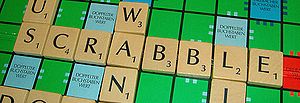In this week’s Monday’s Link Roundup, if you self-publish, don’t miss Book Design for Self-Publishers: Raw Materials. This is a terrific site for anyone involved in book design. And if you’re like me and don’t include pricing on your website, you might change your mind after reading Why We Are Afraid to Talk Pricing.
- Telling Life Stories Through Quilts. “Generations of women have been telling stories in fabric — with quilts. Lisa Morehouse paid a visit to one quilting bee in Mendocino County’s Anderson Valley. Many of the group’s members emigrated to work in the local apple orchards and vineyards.”
- End of life: You shared your stories. “As part of the Globe’s in-depth series on End of Life decisions in the 21st century, we asked you to tell your stories around this difficult topic. Readers from across the country joined the conversation.”
- The Life Reports II. “A few weeks ago, I asked people over 70 to send me “Life Reports” — essays about their own lives and what they’d done poorly and well. They make for fascinating and addictive reading, and I’ve tried to extract a few general life lessons.”
- Not Your Grandmother’s Genealogy Hobby. “Wikis, social-networking sites, search engines and online courses are changing genealogy from a loner’s hobby to a social butterfly’s field day. New tools and expansive digital archives, including many with images of original documents, are helping newbies research like pros.”
- Why We Are Afraid to Talk Pricing. “Think about the last time you went to a website for a product or service that you couldn’t buy outright online. Did it list prices? Or did the site encourage you to call for more information? How many times do you walk away from a purchase simply because you couldn’t get enough information on pricing to make an informed decision?”
- Book Design for Self-Publishers: Raw Materials. “When you sit down to design a book, there are organizational tasks you have to address right at the beginning. Getting your raw materials organized and making sure your workflow will produce an efficient publishing process are important enough to spend some quality time on. Let’s take them one at a time.”
- Family Tree Magazine Podcast Episode Notes. “Tips on how to get relatives to discuss family history, a discussion of the Historic American Cookbook Project, and news on the Genealogists for Families project at Kiva.com. Plus: Learn more about creating a family history book from Family Tree University’s Nancy Hendrickson.”
If you enjoyed this post, get free updates by email.




 Thanks to Denise Olson at
Thanks to Denise Olson at 













